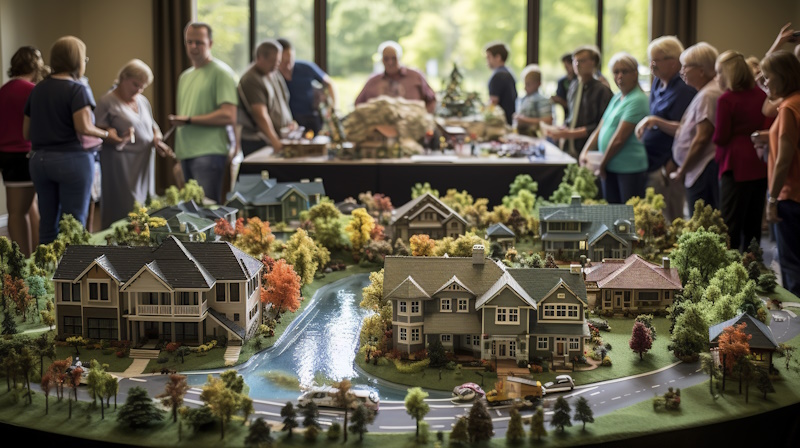When it comes to housing development, “affordable housing” usually means cost, accessibility, and basic amenities. However, the success of affordable housing communities hinges not only on these factors but also on a less tangible yet equally crucial element: resident engagement. Involving residents in these communities isn’t just beneficial, it’s essential to creating thriving, sustainable communities.
Here’s why resident engagement is key to affordable housing’s success.



Building Stronger Communities
A strong, cohesive community starts with resident engagement. In affordable housing, residents often come from different backgrounds and have different needs, perspectives, and skills. Engagement can help bridge these differences, fostering unity and belonging among community members.
Initiatives like community events, workshops, and committees give residents a place to connect, share experiences, and collaborate. The activities you do not only address immediate needs, but also lay the groundwork for long-term community development, whether it’s organizing a neighborhood clean-up drive or advocating for better facilities. “Affordable housing” is often associated with tangible aspects: affordability, accessibility, and basic amenities in housing development.
Some key features that will help an affordable housing manager a great deal along with duties that need to be performed.
Empowering Residents
Affordable housing thrives when residents are empowered to take control of their living space. Rather than just participating, empowerment involves equipping residents with knowledge, skills, and resources to make their communities better.
Education and training programs can help residents develop leadership, communication, and decision-making skills. Empowering people enhances their self-esteem and confidence while cultivating a sense of responsibility for the collective well-being.
Fostering Social Capital
Social capital, characterized by trust, reciprocity, and mutual support, is a vital resource within any community. In affordable housing contexts, where residents may face economic or social challenges, fostering social capital becomes even more critical.
Active resident engagement initiatives nurture social networks and bonds, fostering a culture of trust and collaboration. From informal gatherings to structured community meetings, these interactions strengthen social ties, enabling residents to rely on one another for support, guidance, and solidarity.
Enhancing Quality of Life
The success of affordable housing communities ultimately lies in their ability to enhance residents’ quality of life. Beyond providing affordable shelter, these communities should strive to create environments that promote well-being, happiness, and upward mobility.
Through resident engagement, communities can identify and address pressing issues affecting quality of life, whether it’s access to healthcare, recreational facilities, or employment opportunities. By involving residents in decision-making processes, developers and policymakers can ensure that interventions are tailored to meet the specific needs and aspirations of the community.
Driving Sustainability and Innovation
Adaptability and innovation are key to the sustainability of affordable housing communities in today’s world. Engaging residents is key to this process, harnessing their collective wisdom and creativity.
By actively involving residents in sustainability initiatives, such as energy conservation projects or green space development, communities can reduce their environmental footprint while simultaneously lowering operating costs.
Strengthening Partnerships
The success of affordable housing communities is not solely the responsibility of residents or developers but requires collaboration among various stakeholders, including government agencies, non-profit organizations, and private sector partners. Through resident engagement, partnerships are strengthened and initiatives are aligned with community needs.
By involving residents in the planning, implementation, and evaluation of projects, stakeholders can build trust, transparency, and accountability. Partnerships can leverage diverse resources and expertise, maximizing impact and encouraging shared ownership.
Conclusion
Residents’ engagement is a thread that binds communities together, driving success and sustainability in affordable housing. It’s all about building stronger communities, empowering residents, fostering social capital, improving quality of life, driving sustainability and innovation, and strengthening partnerships. A vibrant, inclusive, and resilient affordable housing community is built on resident engagement. Investing in resident engagement isn’t just an option; it’s imperative for building a better future.




